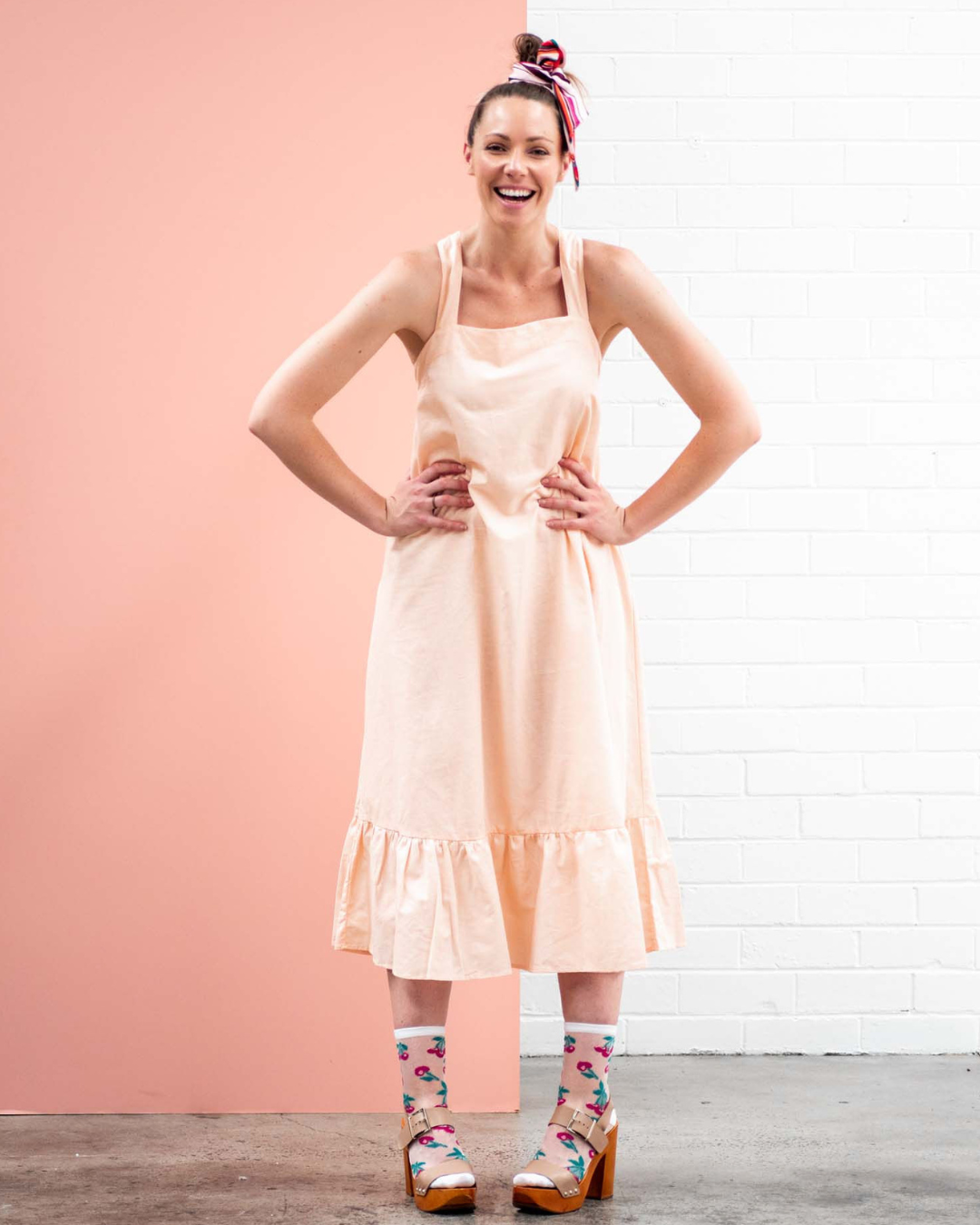It's no secret that fashion has a lot to answer for, but we're doing something about it at The Fashion Advocate. We don't sell polyester fashion and we advocate for sustainable, slow, ethical fashion. We also operate with a '10 value system', and all of our brands share a minimum of three of our ten values.
Doing our part to have a positive fashion impact is important to us, so every year we commit to one major sustainability change for the better. Last year, it was ditching polyester fashion. Why? Because 63% of fashion is now made with polyester, a synthetic fabric produced with petrochemicals and non-renewable resources. It's a nasty, environmentally-devastating fabric, and it has no place in our wardrobes.
Nearly 70 million barrels of oil are used each year to make the world's use of polyester, and oil is a non-renewable resource. Once it's gone, it's gone. Polyester garments also take more than 200 years to break down, but they never decompose; tiny plastic particles exist forever.
So, what's the solution? Ditch polyester and switch to natural, biodegradable, renewable fabrics in your wardrobe, and choose to shop ethically and sustainably.
There are plenty of sustainable alternatives to polyester fast fashion. Natural fabrics like cotton, hemp, silk and linen are better for the environment, less energy-intensive, biodegradable, and they're a healthier option to wear too. The skin is the largest organ, so everything we put on it, goes in it, including the chemicals found in our clothing - another great reason to boycott polyester.
Cotton is renewable, biodegradable and breathable, but it's also one of the most water-dependent and pesticide-dependent crops to farm. Cotton is a much better alternative to polyester, but organic cotton is an even better option to conventional cotton. The growing of organic cotton uses 71% less water and 62% less energy than conventional cotton, and it's free from farming pesticides too, which is better for your skin. Shop our organic cotton fashion here.
Hemp has been cultivated for thousands of years on almost every continent in the world, and it's one of the most sustainable fabrics you can buy. It returns up to 70% of the nutrients it takes from the soil during cultivation, it requires very little water (so it grows organically extremely well), and it produces up to twice as much fibre per hectare than cotton. It's also biodegradable, breathable, renewable, and feels a lot like linen to wear. Shop our hemp fashion here.
Silk is another sustainable alternative to polyester, and it's biodegradable, natural and renewable. One thing it isn't, is vegan, but if you're a silk-lover and an animal-lover, you don't have to sacrifice your love of the finer fabrics in life. 'Peace silk' or 'Ahimsa silk' is a cruelty-free silk option, as no worms are harmed in the farming process. When silk is farmed ethically and sustainably, it's also a very low-waste and low-energy process; silk worms live on a natural diet of mulberry leaves. Shop our silk fashion here.
Linen feels and wears like hemp and cotton, and it's just as sustainable, renewable and breathable. It's an incredibly strong fibre, so it lasts hundreds of wears, and it's derived from the flax plant, which, when grown in its natural geographical zones, produces zero waste. Every single part of the flax plant can be used too, so beyond producing linen, the entire flax plant can be used to create paper, oil and other bio-materials. Flax farming uses less water and pesticides to grow than conventional cotton, and natural un-dyed or eco-dyed linen is completely biodegradable - worms love it. Shop our linen fashion here.
To learn more about why it's a good idea to ditch polyester, click here, or shop our entire range of ethical and sustainable Australian and New Zealand designers here.
The Fashion Advocate x







